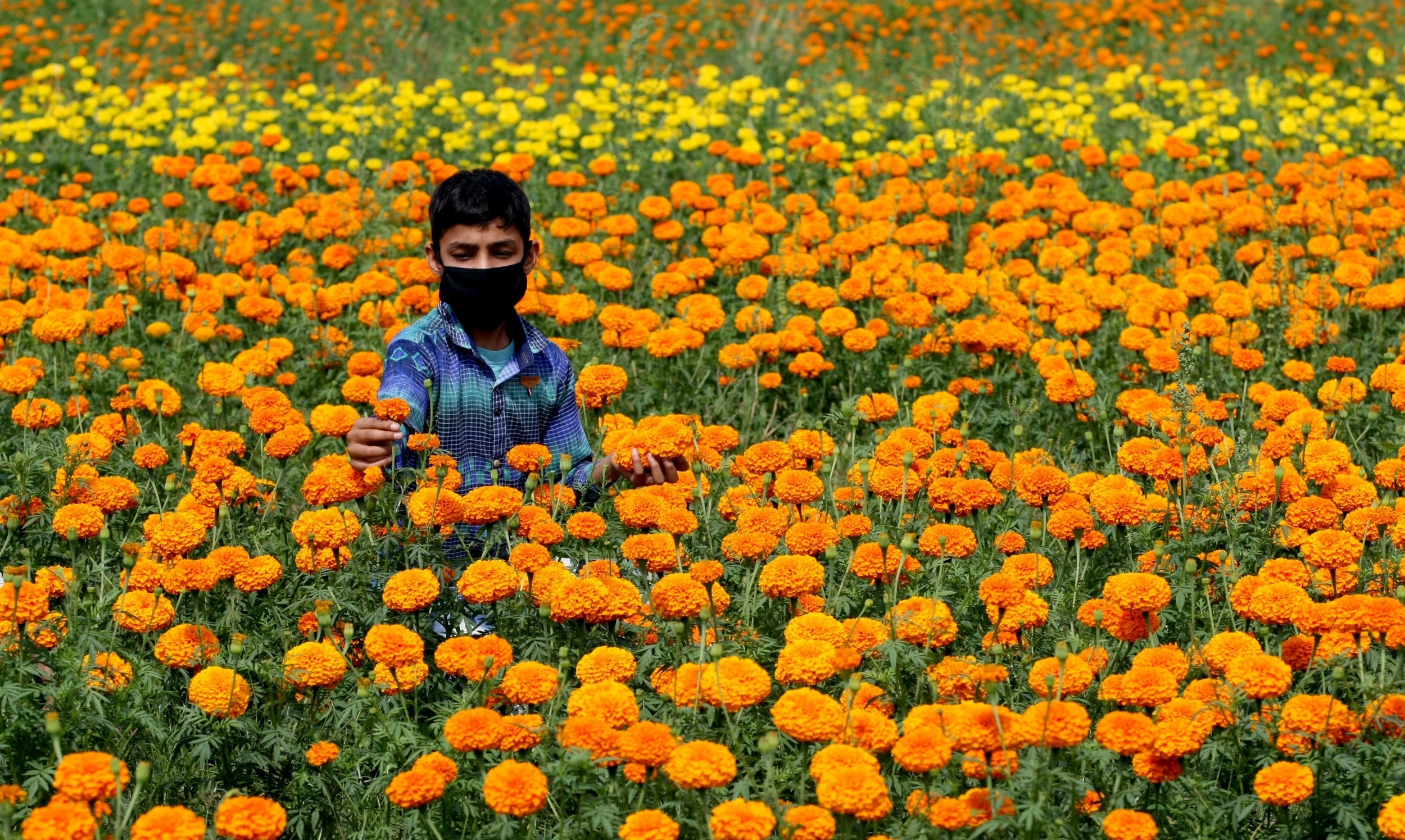India eases lockdown for rural areas despite record spike in coronavirus cases
But people living in major cities will see little change in restrictions that have meant not leaving home for almost a month except to buy food or medicines, Adam Withnall reports


India began easing lockdown restrictions in some areas on Monday despite recording its biggest single-day spike in new coronavirus cases so far, as the Modi administration tried to avoid what would be the first recession in the country’s modern-day history.
The national lockdown in India, one of the strictest in the world, is scheduled to continue at least until 3 May, but with millions out of work and short on food the government has said that farmers and manufacturers can go back to work in rural areas, and freight trucks will be allowed to move between states.
People living in major cities like Delhi and Mumbai will see little change in a lockdown that has meant not leaving home except to buy food or medicines since 22 March – almost a full month.
They are listed among “hotspots” for the disease, which has led to 17,264 cases in total in India and at least 543 deaths. Though testing has been limited – India is still well short of its target of screening 40,000 people per day – the government believes the disease is mostly contained to a relatively small number of districts.
More than 60 per cent of confirmed cases come from just five of India’s 28 states, and officials believe that by keeping strict measures in place in those places, while at the same time freeing up industry in less-affected rural regions, the country can effectively manage the virus outbreak while feeding its people and producing goods.
The government had also planned to allow e-commerce websites like Amazon to resume the sale of non-essential goods for the first time in weeks on Monday, potentially restarting business for thousands of brands that sell through such portals.
But the authorities performed a U-turn on Sunday after heavy lobbying by a trade association representing millions of small bricks-and-mortar businesses. The association claimed the easing of restrictions for e-commerce would have been unfair to small traders, the kinds of voters who make up the backbone of support for Narendra Modi’s Hindu nationalist BJP party.
Even though it is limited in scope, the easing of the lockdown in rural areas could offer vital respite to thousands of migrant workers who were stranded in cities and stripped of their sources of income overnight.
Major public infrastructure works – essential sources of work for millions of uneducated people in India – will be allowed to resume, and some transport within states permitted so that labourers can reach construction sites.
And small non-essential businesses were also allowed to start plying their wares in many places, as long as they exercise social distancing. Ramkumar Sharma, a carpenter outside Lucknow in Uttar Pradesh state, told Reuters he had opened up for business and that he would take precautions. “This is a great relief to be able to work,” he said.
Ultimately, India’s federal system means the central government can only set out guidelines for how the national lockdown should be implemented – it is up to individual states to enforce them.
Some, including the national capital territory that surrounds and includes Delhi, have said they won’t be easing their restrictions at all, even outside of urban areas.
Others, like the southern state of Kerala which has been praised for its effective virus containment measures, are going further than the recommended easing.
The Keralan state government has come up with its own traffic light system for rating districts by their virus caseloads, and people living in “green” zones will be allowed to start driving their cars, using pubic buses and even dining at restaurants.
The home ministry has expressed its concerns, accusing Kerala of “diluting” the national lockdown measures, but Keralan minister Kadakampally Surendran insisted its changes “followed all norms set by the central government”.
India’s economy was already floundering before the coronavirus crisis, with record unemployment levels and growth at its slowest rate since it became an independent country.
Most economists now expect the country to record zero growth for the first time in the financial year that began on 1 April, while some have told The Independent they see a historic first recession as all but inevitable.
Join our commenting forum
Join thought-provoking conversations, follow other Independent readers and see their replies
Comments